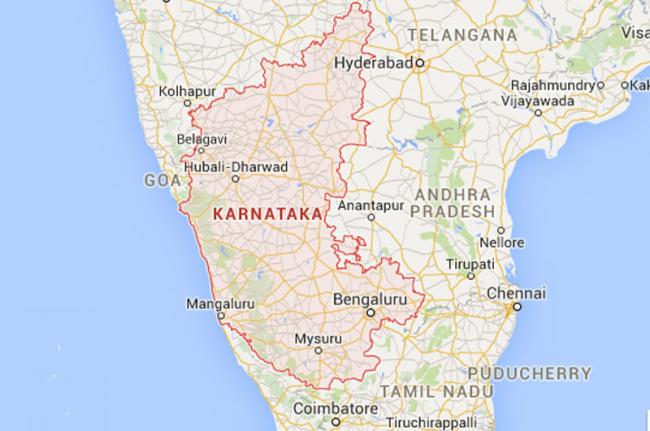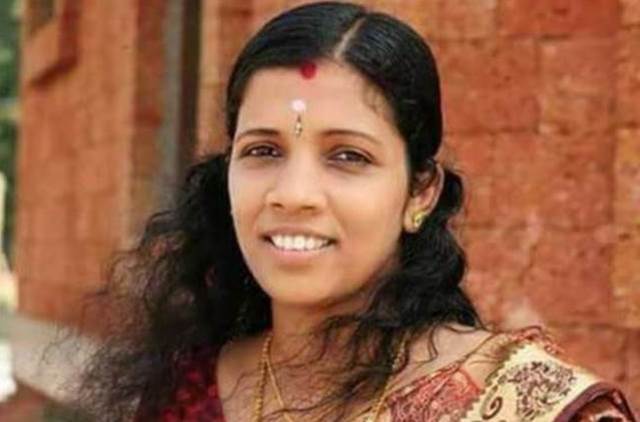
Two people admitted in Karnataka hospital on suspicion of Nipah virus attack
Bengaluru, May 24 (IBNS): Although a health official from Karnataka has said that there has been no confirmed cases of Nipah virus spreading in the state, two people are suspected to be infected and undergoing treatment, according to media reports on Thursday.
A Karnataka state health official was quoted by NDTV as saying that symptoms of the virus surfaced in a 20-year-old woman and a 75-year-old man in the port city of Mangalore after they travelled to neighbouring Kerala and had contact with infected patients.
Media reports said that the rare virus has killed at least 11 people, including a nursing assistant, in adjacent Kerala.

Image: Lini Puthussery, a nursing assistant in Kerala, died recently due to Nipah virus infection
State health officials and a team sent by the Central government are working to control the spread of the deadly virus,
The virus is borne by fruit bats and the infection is believed to have started with a family in Kozhikode.
Nipah was first identified in Malaysia in 1998.
Factsheet: Nipah virus infection
Nipah virus (NiV) infection is a newly emerging zoonosis that causes severe disease in both animals and humans. The natural host of the virus are fruit bats of the Pteropodidae Family, Pteropus genus.
NiV was first identified during an outbreak of disease that took place in Kampung Sungai Nipah, Malaysia in 1998. On this occasion, pigs were the intermediate hosts.
However, in subsequent NiV outbreaks, there were no intermediate hosts. In Bangladesh in 2004, humans became infected with NiV as a result of consuming date palm sap that had been contaminated by infected fruit bats. Human-to-human transmission has also been documented, including in a hospital setting in India.
NiV infection in humans has a range of clinical presentations, from asymptomatic infection to acute respiratory syndrome and fatal encephalitis. NiV is also capable of causing disease in pigs and other domestic animals. There is no vaccine for either humans or animals. The primary treatment for human cases is intensive supportive care. (Source: WHO)
Support Our Journalism
We cannot do without you.. your contribution supports unbiased journalism
IBNS is not driven by any ism- not wokeism, not racism, not skewed secularism, not hyper right-wing or left liberal ideals, nor by any hardline religious beliefs or hyper nationalism. We want to serve you good old objective news, as they are. We do not judge or preach. We let people decide for themselves. We only try to present factual and well-sourced news.







